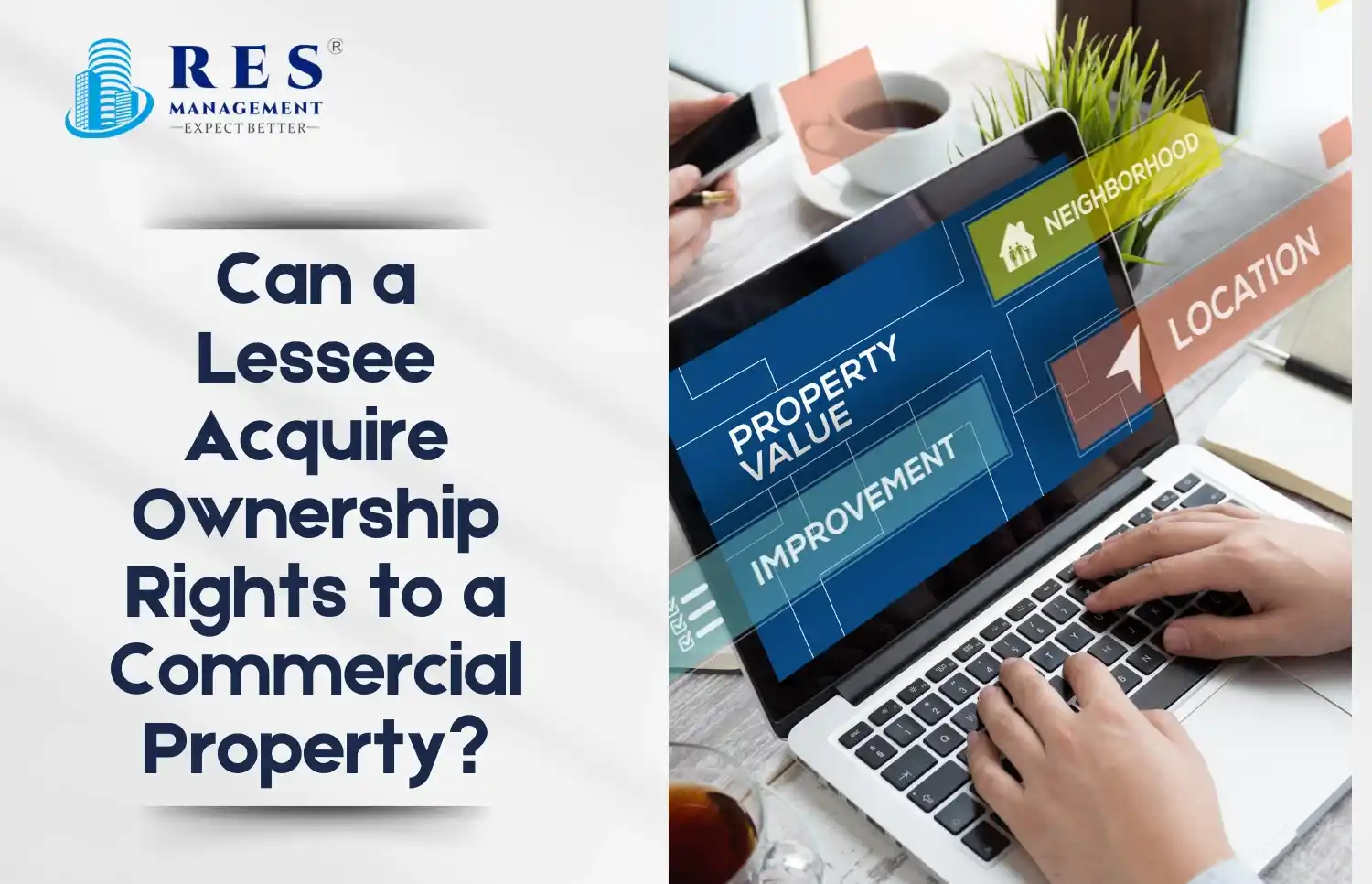
Commercial property owners leasing their properties to tenants worry for the tenants to use adverse possession in ownership of the property. So, can a tenant use adverse possession to claim ownership of a commercial property?
To answer this question, we need to define adverse possession, explore the landlord’s rights with regard to his property when he leases it, and examine the clauses in a commercial lease.
Most commercial property owners worry about the potential of losing their properties to a tenant. They will ask, can a tenant obtain ownership of a commercial property? Is their worrying justified? By law and on record, a commercial property tenant is always a tenant, and there is no legal language stating that ownership is obtained.
The landlord needs to be sure of the proper registered and stamped lease agreements, valid durations, renewal clauses, a documented chain of renewals, and a blank clause of vacating after the lease expires. If the documentation is strong, then the commercial owners have little to no fear; however, the concept of adverse possession creates concern.
What is Adverse Possession?
The legally recognized provision of adverse possession lies with The Limitation Act, established in 1963. The provisions, as the title indicates, state that if an owner does not win an appeal to have the limitation reverted for a period, the title status will remain as is.
Under the statute, that period is 12 years. Thusly, if the real property owner does not assert a claim of the property for 12 years, the tenant claiming the property will discuss the possibility of claiming ownership. There are exceptions where the owner is not mentally incompetent, a minor, or a member of the armed forces of the Republic of India.
Although it may not be legal, the process may work in the same manner under the statutes that the owner had lost interest in the land for 12 years. This circumstance may also develop owing to a lack of information or knowledge and the judiciaries of today may recognize this as well.
Lawsuits may run many years on the topic that one may feel a case could have been resolved amicably without a trial.
In 2019, several news sources reported on the subject, citing the Supreme Court's remark on the issue:
"By perfection of title on extinguishment of the owner’s title, a person cannot be left without a remedy. If the former owner has dispossessed him after losing the right to adverse possession, he can be evicted by the former owner by taking the plea of adverse possession. Similarly, any other person who may have dispossessed the former owner by having perfected title by adverse possession can be evicted from the premises unless he has perfected title by adverse possession."
How Adverse Possession Works?
Continuity in adverse possession refers to constant or uninterrupted use for 12 years by the tenant. The tenant must be in no. The occupier must show sole possession for the past 12 years, while open possession means that possession cannot occur without the owner knowing.
Any tenant or possessor must provide some documents before the Court. These include a date of possession known to the general public, the character of the same, and the duration. Tenancy by lease agreements do not fall under the law of adverse possession in India.
However, in some instances where an owner is in breach of some clauses of the lease or the lease has expired, tenants have availed of the same to file ownership claims under adverse possession. The owner may act for 12 years if and only if the owner has breached the contract. They ought to vacate the premises to avoid adverse possession.
After the expiration of the tenant's lease, if the tenant pays rent to the property owner, he may not be able to apply for ownership under the law of adverse possession.
What Law has Stated About This?
Tenants occupying commercial properties are required to vacate in the event a landowner directs them to leave based on a Supreme Court ruling. Justices B N Agrawal and G S Singhvi noted that Section 14 (1) (e) of the Act of 1958 violates the equality principle in Article 14 of the Indian Constitution and asserted there is no distinction between commercial and residential properties.
Landlords can evict tenants needing the premises for either themselves or a family member or, even if they are owners, for bona fide purposes. They may claim such need for occupation in the event there is no other appropriate option.
The Bench stated that since 1947, there has not been a clear distinction between commercial and residential premises in New Delhi. The 1995 Act, either, does not distinguish between commercial and residential properties in the event the landlords request the premises for their own or bona fide purposes.
There are no other statutory arrangements by which tenants may obtain legal title to commercial properties. Ensure that there is a written and registered agreement in place, that stamp duty is paid, and that this document is renewed upon expiry.
Never let your tenant occupy the commercial property without a legal agreement in place. Tenants may have possession for a long time, but the document will always provide the final word.
Always write receipts, keep records, or email reminders of rental payments, utility bills, and maintenance fees to show that the company or individual is a tenant.
Points to Consider
The 1948 Rent Control Act continues to regulate most conflicts, albeit with variations in states like Maharashtra, Delhi, and Karnataka.
The Draft Model Tenancy Act 2015 states landlords can evict tenants if they breach the agreement, sublet the property or part of it without the owner's permission, default on rent for a specified period, misuse the property, or permit illicit activity.
Tenants can be evicted if the landlord requires the premises for his use or occupation. A rental rise clause serves toprevent tenants from holding on to the property's waiting for an opportunity.
The landlord also has the right to repossession, however, for a limited time, to perform those alterations, renovations, repair work, and other tasks that need an empty building.
The owners of commercial spaces can periodically raise the rent and are obliged to respond to maintenance and repairs within a proper timeframe.
Tenants can handle small repairs, but for more extensive repairs, they need to get permission from the landlord.
Main Clauses of a Commercial Lease Agreement
The lease is a formal agreement between a tenant and an owner if a legal dispute occurs in the future.
A commercial property owner must also be proactive regarding timeframes on lease renewal; to avoid unnecessary legal events over a lease.
There are many important clauses in a commercial lease, but there are some key provisions to ensure are in your commercial rent agreement before agreeing to take a property. 1. Rent escalation -
This clause provides details as to what percentage increase in actual rent amount may be expected annually after the term ends. 2. Delivery condition -
It is important when renting a commercial space that you articulate the condition of a property for every purpose. The commercial tenant may want to obtain a property furnished or bare shell. It is always important to indicate in the agreement. 3. Exclusive Rights -
This is a significant clause that grants a tenant the exclusive right to be the service provider on an agreed-upon site. Exclusive rights and/or privileges represent common terms in shopping malls and commercial space leasing situations. 4. Sublease clause -
This significant 'Sublease Clause' states whether the tenant may sublease part of the rental site or utilize any unused portion of it. Usually, tenants cannot sublease the site without the owner's prior written permission. 5. Additional costs -
During the lease period, it is also important to specify who is responsible for payment of any additional costs like property taxes, building insurance, maintenance fees, etc., in the lease.
Frequently Asked Questions 1. Can you lease to own a commercial property?
Investing in commercial real estate is a considerable financial commitment. For investors seeking a more flexible approach, a lease-to-own concept may provide a viable option. Although each opportunity has its inherent risks for both owners and tenants or potential buyers, the concept will likely have positive possibilities for both parties. 2. Does adverse possession apply to commercial property?
Adverse possession may have several negative effects on commercial property. The commercial property owner can suffer considerable financial losses through their inability to sell the property to the adverse possessor's financial benefit. 3. Can a tenant claim ownership after 10 years of stay?
No, a tenant does not gain ownership of a property simply because the tenant has lived there for 10 or more years. However, under certain conditions, a tenant can claim ownership by adverse possession after occupying the property for a continuous, uninterrupted, and public 12 years and satisfying additional current conditions of law. 4. Can a tenant claim ownership of a commercial property?
No other legal provisions exist whereby tenants can become legal owners of commercial properties. You should ensure a written and registered agreement; pay the stamp duty; and renew the agreement on its expiration. Do not allow your tenant to occupy the commercial property without a legal contract.
Bottom Line
Typically, a tenant cannot obtain title to a commercial property, especially with a valid lease agreement. Adverse possession laws are not intended to favor tenants with possessory rights in a property with the owner's permission.
Courts seek to protect property owners in commercial and retail situations, and therefore, it is unlikely that a tenant would overcome that burden and establish property rights. The likelihood of recovery is high and less risky considering the risk of paying a tenant from the commercial perspective.
To avoid disputes, both parties should have a clear understanding of their legal rights and obligations, and leases should clearly state ownership conditions. In the event of a dispute regarding possession or termination of the lease, it is best to seek guidance from a real estate attorney.
Find the best pre-leased properties with RES Management and the best real estate advice.





